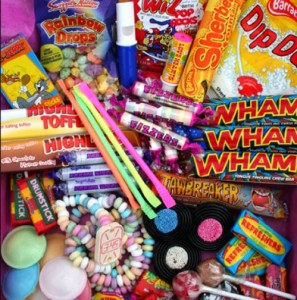Is there a relationship between candy, alcoholism and depression? A recent study published in Addiction found that children’s response to intense sweet tastes is related to alcoholism and depression: both a family history of alcoholism and the child’s self-report of depression. The research revealed how desire for sweets differs among children based on underlying familial and biological factors.
 Although a sweet taste is rewarding to almost all kids, Dr. Julie Mennella, a developmental psychobiologist at the Monell Center and the study’s lead author, says that “certain groups of children may be especially attracted to intense sweetness due to their underlying biology.”
Although a sweet taste is rewarding to almost all kids, Dr. Julie Mennella, a developmental psychobiologist at the Monell Center and the study’s lead author, says that “certain groups of children may be especially attracted to intense sweetness due to their underlying biology.”
According to Medical News Today, researchers examined the sweet preferences of children with a genetic predisposition to alcoholism because sweet taste and alcohol activate many of the same reward circuits in the brain. They also studied the influence of depression, hypothesizing that children with depressive symptoms might have a greater affinity for sweets because sweets make them feel better. 300 children between 5 and 12 years of age tasted five levels of sucrose (table sugar) in water to determine their most preferred level of sweetness. The children also were asked questions to assess the presence of depressive symptoms, while their mothers reported information on family alcohol use. Nearly half the children had a family history of alcoholism and almost one-quarter were classified as exhibiting depressive symptoms.
The study found that the liking for intense sweetness was greatest in the 37 children having both a positive family history of alcoholism and also reporting depressive symptoms.
Mennella noted that the findings do not necessarily mean that there is a relationship between early sweet preferences and alcoholism later in life. “At this point, we don’t know whether this higher ‘bliss point’ for sweets is a marker for later alcohol use,” she said. However, current findings highlight the need for additional research to identify whether these clusters of children will require different strategies to help them reduce their intake of sweets and possibly substance abuse prevention measures.


